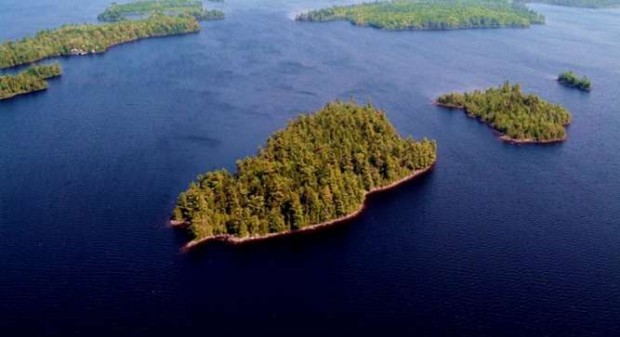When you think of Maine, what do you think of? Lobster. Beaches. Summer. These are the associations of the summer tourist economy. Bu you can surely add to this list things from the other tourist economy: Moose. Rivers. Deep woods. Mountains. And the state bird, the black fly.
It was to explore these wild places — Kathadin, Allagash — that Thoreau traveled north. Given that L.L.Bean’s flagship store in Freeport is the state’s number one tourist destination, and that L.L.Bean boot has now become fashionable in Brooklyn, it’s fair to say that Maine conjures vivid associations with adventuring in the outdoors. A new report may challenge that notion.
The report claims to show that, according to George Smith in the Bangor Daily News (BDN), “less than 100,000 Maine residents buy a hunting or fishing license, or both, each year.”
The report, released earlier this month, comes from Bill Swan, Director of Licensing for Maine’s Department of Inland Fisheries and Wildlife, in a report he shared with the legislature’s Inland Fisheries and Wildlife Committee, on a professional study of a proposal to expand lifetime licenses.
Specifically, the study finds that “only 70,000 residents purchased a hunting license in each of the last five years, and only 60,000 residents purchased a fishing license in each of the last five years.” According to Smith, “Bill told me that many residents purchased both, and he estimated that less than 100,000 residents purchased one or both licenses.”
I confess that this number is lower than I thought it would be. But the headline was truly shocking, so I mulled it over and here’s what I think.
– Maine has had the option for people to buy a lifetime license for as long as I’ve known. (If anyone knows when this started, I’d be interested.) The study shows the number of people who bought licenses, not the number of people who fished. If you include people with lifetime licenses, the number is undoubtedly larger.
– This number does not include the number of people who go saltwater fishing. So again, the number that go “fishing” is undoubtedly much larger. According to one comment in a sometimes belligerent thread on the Maine Fly Fish forum about this article someone named Coastal Fly Angler said: “The Maine Department of Marine Resources works in conjunction with the National Marine Fisheries Service’s on the Marine Recreational Information Program. During 2008, 310,000 anglers made 840,000 saltwater fishing trips in Maine.” (The source of that number can be found here.)
– This number doesn’t include illegal poachers. How many does that include? Hard to say, but an the Sun Journal, a sister newspaper to the BDN, published an editorial in 2012 under the headline, “In Maine, no real deterrent for poaching.” This was about hunting, but how bad is it for fishermen? With the price of elvers so high, there has been a series of stories about the prevalence of poaching in Maine.
Given these conclusions, I’m not sure I would agree with the headline of the BDN story. I trust the number cited in the study, but I think the BDN headline was misleading. I don’t know how many people fish and hunt in Maine every year, but the 2008 numbers of saltwater fishermen suggest differently. Even if this number — 310,000 individual anglers — is accurate only by the order of magnitude, it likely pushes you well over the 100,00 mark.
Consider this rough equation:
(310,000 individual saltwater anglers – non-resident anglers in that study) + 60,000 Maine residents in the study who purchased fishing licenses + those with lifetime licenses = how many? I would argue 100,000+. Easy.
But then, I could be wrong. What I do think is that we should be careful not to downgrade the image of Maine as a sportsman’s paradise. It’s a state that still boasts some truly terrific fishing and hunting opportunities, not to mention hiking, skiing, biking and other outdoor activities. It’s more than just the state’s identity that’s at stake: it’s the state’s economy as well.


